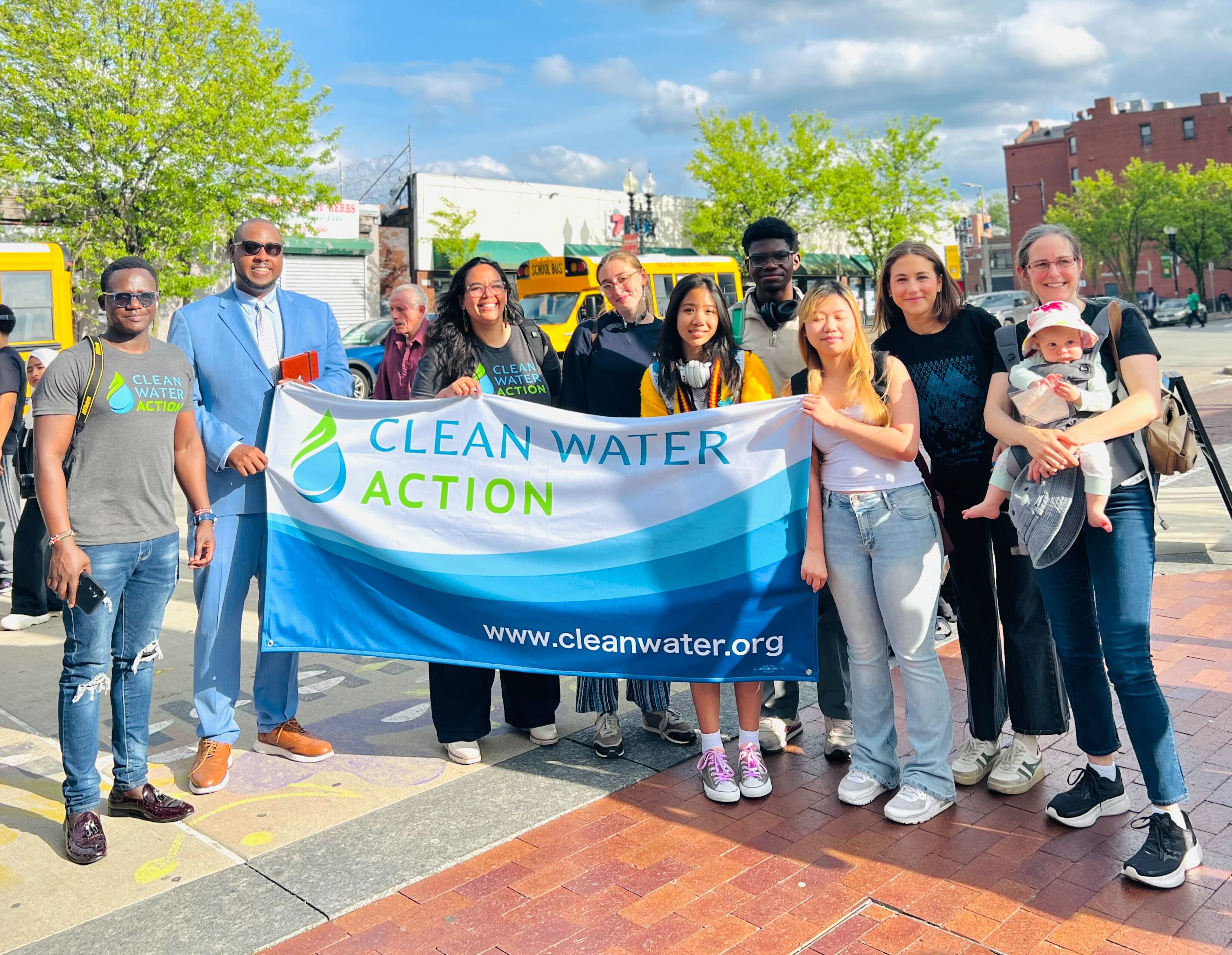
ROXBURY, MA: Elected leaders joined grassroots organizers and concerned neighbors representing a broad coalition of environmental groups from across Massachusetts to rally for legislative action to fight air pollution on Monday. The coalition has rallied annually on World Asthma Day to uplift the voices of residents of Environmental Justice communities who are already suffering health harms from being overburdened by pollution.
A joyful crowd enjoyed listening to speakers and music on the sunny afternoon, and organizers urged gathered neighbors to contact their state legislators to support S.2682, legislation to address outdoor air pollution, as well as to keep the pressure on their elected officials for action to address indoor air pollution like mold. Among the speakers were Massachusetts State Representative Christine Barber, State Senator Liz Miranda, leaders from Clean Water Action, the Coalition for Social Justice, GreenRoots, Boston Climate Action Network, and other organizations, as well as youth leaders from Malden High School and local neighbors.
"Air quality affects our public health and is an intersection between health, race, and environmental issues. As leaders on World Asthma Day, we need to continue to take steps to improve environmental and health justice for our communities." - Massachusetts State Rep. Christine Barber
“Growing up in the Dudley Triangle in Roxbury, I saw everyday people organize with their neighbors to rebuild our community after arson for profit, redlining, urban renewal, the impacts of a trash transfer station, and toxic release inventory facilities. With a difference in life expectancy of 33 years compared to residents of the Back Bay a few miles down the road, our zip codes are killing us. Environmental justice is a racial justice issue, and I am happy to be joining Clean Water Action and the many other community partners involved to continue fighting for clean air and EJ communities, like the one I have always lived in.” - Massachusetts State Senator Liz Miranda
"Environmental justice is deeply intertwined with racial justice. Marginalized communities, often communities of color, disproportionately bear the burden of environmental pollution and degradation. In Boston, neighborhoods with the highest asthma rates are also communities that were subjected to redlining and mortgage discrimination." - Rev. Vernon K. Walker, Climate Justice Program Director, Clean Water Action
“Addressing air quality in our cities and in our homes can help reduce the prevalence of asthma, as well as other cardiovascular and respiratory diseases. S.2682 can help us get there. Monitoring the air and reducing pollution in our cities and towns will result in better health for the people who live there. But there is so much work that needs to be done to improve the air inside of homes, the air that people are breathing most of the time.” - Barbara Espinosa Barrera, Environmental Justice & Health Equity Organizer, GreenRoots.
“Every Day, Bostonians get sick with preventable conditions from poor air quality. This does not affect every neighborhood equally. Low-income, Black, and Brown communities are hit first and worst by poor air quality. Whether from highways in Chinatown or airports in East Boston, we see kids developing asthma, staying home from school, and unable to live normal lives due to policy decisions we collectively make. But today, we can make a different choice. By passing the Air Quality Bill (S.2682), the Siting and Permitting Bill (H.3187), and others, we can put an end to this cycle of poor health.” - Hessann Farooqi, Executive Director, Boston Climate Action Network.
“Poor indoor air quality isn't just a private problem; it is a severe public health crisis. When air is tainted by mold, it's not just an irritation; it's a silent assassin. It's a hidden risk, invisible yet preventable, and a clear issue of public responsibility and human rights. No individual should endure health battles caused by polluted air in their homes.” - Sabrina Davis, Coalition for Social Justice
"Across the state and in environmental justice communities like mine in Everett, our health has been sold to toxic, polluting industries in exchange for tax benefits. The Covid-19 pandemic brought the crisis to the forefront, but it's been a fact of life for years, with numbers to support our experience. Air quality monitoring will give us a tool to measure and mitigate the impacts of environmental pollutants and increase the quality of life for residents of the commonwealth.” - Sam Lambert, Political and Municipal Organizer, Sierra Club Massachusetts Chapter
The coalition will continue pushing for the passage of legislation addressing air pollution in Environmental Justice communities before the 2023-24 legislative session ends.
###
Since our founding during the campaign to pass the landmark Clean Water Act in 1972, Clean Water Action has worked to win strong health and environmental protections by bringing issue expertise, solution-oriented thinking, and people power to the table.